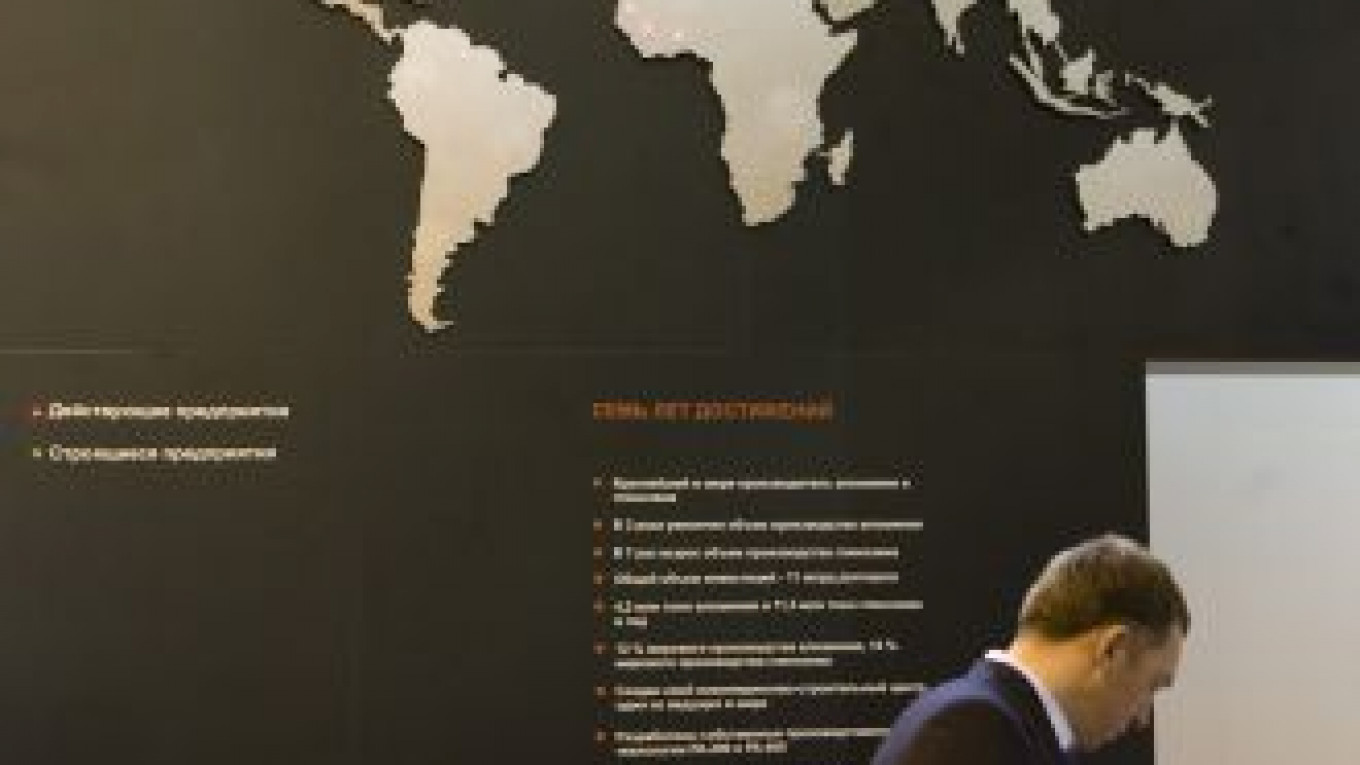BEIJING / HONG KONG — RusAl, the world’s largest aluminum producer, said it would cut capacity 3 percent by the year-end and was taking a charge on its investment in Africa, as it grapples with weak prices and rising power costs.
The company, which produces 9 percent of the world’s primary aluminum, has been hurt by persistently weak prices for the metal used in drink cans, car parts, planes and iPads. Slack demand and overproduction have pushed prices near two-year lows.
It reported a net second-quarter loss of $37 million on Monday, including a $167 million impairment related to its Friguia alumina refinery in Guinea, where it faces a challenge to its operations from the government.
Chief financial officer Yevgeny Kornilov said on a conference call: “Since April, the plant is on strike, which is illegal as ruled by the local court. Also, the plant has a high cost of production, which makes operations there, at present, uneconomical.”
Unions say a 2006 contract that sold the Friguia refinery to RusAl should be annulled.
RusAl continues to operate in Guinea, where it also owns Compagnie des Bauxites de Kindia, or CBK, its largest raw materials asset, which together with the Friguia complex accounts for over 40 percent of the company’s bauxite output. RusAl also owns the Dian Dian bauxite project in Guinea.
The company said the planned cut of 150,000 tons of aluminum capacity by the end of 2012 — about 4 percent of expected 2012 output — would be part of a review of 275,000 tons of capacity that could be replaced by cheaper smelters being built in Siberia.
Capacity cuts would be at RusAl’s Nadvoitsy aluminum smelter (NAZ), Bogoslovsk aluminum smelter (BAZ), Volkhov aluminum smelter (VAZ) and Novokuznetsk aluminum smelter (NkAZ) in Russia. Early this year, RusAl said it planned to cut aluminum capacity by 6 percent within 18 months.
Concerns about weakening demand have also prompted rivals Alcoa and Norsk Hydro to cut capacity.
RusAl revised down its full-year forecast for global primary aluminum consumption to 6 percent growth from 7 percent and said it expected 10 percent growth in demand from China, against a previous estimate of 11 percent.
It said consumption demand from China would likely speed up in the second half, driven by economic stimulus programs being launched by the government.
Tight cost controls helped RusAl beat earnings estimates, despite a 72 percent drop in recurring net profit.
RusAl and rivals Alcoa and Aluminum Corp of China (Chalco) are struggling with aluminum prices down 5 percent this year.
“Second-quarter earnings were better than expected, largely due to better cost controls and higher LME premiums, but otherwise no surprise,” Robin Tsui of BOCI Research said.
“RusAl should outperform its rivals and be able to make a profit at the current aluminum price level due to its relatively low production costs.”
Despite RusAl’s market-leading position, the weak operating environment has increased pressure on the company, embroiled in a shareholder battle over its stake in Norilsk Nickel.
RusAl’s Hong Kong-listed shares, which have fallen 12 percent in value this year, were up 0.2 percent to HK$4.34, compared with its IPO price of HK$10.80 in 2010.
The company said second-quarter recurring net profit fell 72 percent to $143 million, compared with a forecast for $110 million in a Reuters poll.
Recurring net profit is defined as adjusted net profit plus the company’s net effective share in the results of Russian group Norilsk Nickel, the world’s largest nickel and palladium miner.
Its earnings are sensitive to aluminum prices. A 10 percent price increase could nearly double the company’s 2013 earnings, Standard Chartered said in a research note.
RusAl said it had net debt of $10.9 billion at end-June, and no short-term obligations until the end of the year.
It said it will have to pay $450 million to lenders in 2013 and has sufficient liquidity to meet those obligations.
Sual Partners, which owns 15.8 percent in RusAL, thinks the aluminum giant’s decision to shut down a number of smelters was misguided, Sual Partners said in a statement, Interfax reported Monday.
The company said it had voted against cutting capacity at the smelters at a board meeting last week.
Related articles:
A Message from The Moscow Times:
Dear readers,
We are facing unprecedented challenges. Russia's Prosecutor General's Office has designated The Moscow Times as an "undesirable" organization, criminalizing our work and putting our staff at risk of prosecution. This follows our earlier unjust labeling as a "foreign agent."
These actions are direct attempts to silence independent journalism in Russia. The authorities claim our work "discredits the decisions of the Russian leadership." We see things differently: we strive to provide accurate, unbiased reporting on Russia.
We, the journalists of The Moscow Times, refuse to be silenced. But to continue our work, we need your help.
Your support, no matter how small, makes a world of difference. If you can, please support us monthly starting from just $2. It's quick to set up, and every contribution makes a significant impact.
By supporting The Moscow Times, you're defending open, independent journalism in the face of repression. Thank you for standing with us.
Remind me later.


